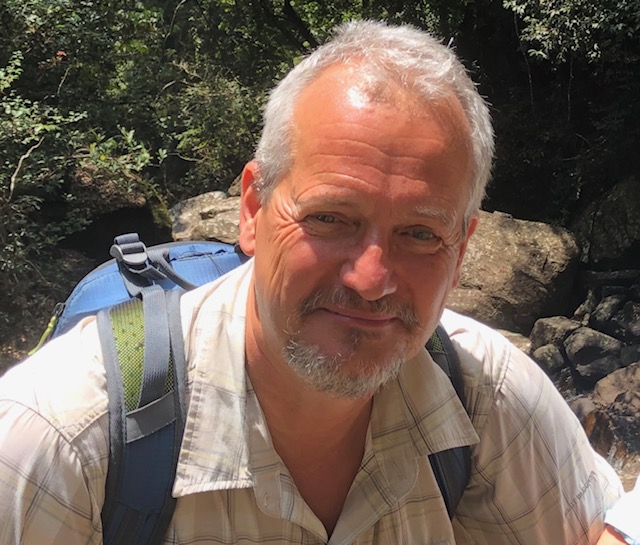March 2020
Starting a fabulous new role as CEO of Plantlife has given me opportunity to reflect on many aspects of society’s interaction with the natural world, and not just with plants. We live on this extraordinary planet – just this one – with all of its complex systems and processes evolved over billions of years. Our time on it has been remarkably short, yet we’ve caused an extraordinarily rapid deterioration, taking systems to the brink of collapse. My reflections are around whether we can reverse this impact and at what speed.
Despite the scale and complexity facing us, it can still be the default position to focus on individual interventions, often thereby leading to unintended consequences.
As an example close to home, I absolutely love trees and I marvel at the annual cycle of the beech trees in the field behind our house. I completely support the ambition to plant more trees and the positive mitigation this offers against some of the causes of climate change. But pursuing this laudable objective in isolation is too simplistic. Biodiversity loss is another major challenge we face and tree planting in the wrong habitats could cause a greater loss to biodiversity in the short to mid-term than climate change. Species-rich grassland and meadows are home to more species than any other habitat, while more than half of our wild flora need regular management or disturbance to thrive. We need to be thinking about climate change mitigation action and biodiversity together.
Globally, we are the instruments of mass species extinction, possibly the sixth great wave and, however appealing, we cannot be so singular in responding to one critical area that we walk into a catastrophic impact elsewhere. Loss of many iconic, native species would be one such catastrophe and avoiding this outcome requires a truly holistic approach to nature conservation. I have no doubt we have the ingenuity and ability, but are we willing to match our response to the complexity of the problem?
Governments have a major part to play in supporting such a joined-up approach and avoiding promotion of too narrow an intervention. These multi-variant challenges require true collective and insightful leadership at national and international level. Yet few governments appear to have found a way, or chosen a path, to operate at such a level. Funding constraints, internal change and national and international pressures can demand immediacy and dominate the agenda but failing to think in the long-term or taking integrated action for the benefit of nature now, will make the future job so very much harder. In England, for example, this requires a joined-up approach to the Agriculture Bill, Environment Bill and post-Brexit policy across government.
It is a truism to say that nearly all habitats are plant-based and yet our focus is often on the more iconic species, the fauna they support. We marvel at the panda but rarely stop to think about the bamboo; the cuddly koala so dependent on the gum tree. As a society we continue to be ‘plant blind’ in much of our interactions with and interventions in nature. Yet in the same way that every building must have its foundations, habitats must have their plants and fungi.
At Plantlife we seek to promote the conservation of threatened plant habitats and endangered species. We do it in many ways; through advocacy, advice, land management, public engagement, fund-raising and education to name a few. We do it because we love what these habitats represent – their richness, colour, smell, scarcity, life support to others, interactions, taste, and medicinal properties. But we also do it because we believe that vibrant, species rich habitats are a way back to a more balanced and sustainable world. We value them for their innate natural capital as well as their intrinsic beauty. We appreciate the ecosystem services they offer as ways to address flood management, clean air, clean water and so much more.
Plant life is our life, equal in all its myriad of complexities. Conserving, protecting and enhancing it must be part of an integrated and holistic approach to reversing so many decades of damage across the natural world. With this agenda in mind, who would not want to join our cause? Our collective cause as well as our individual.
For me it is a privilege and enormously exciting. I look forward to meeting and working with you through Wildlife & Countryside Link to further what I am sure are shared objectives. We don’t have much time to do so but I have no doubt that we, and increasingly wider society, are willing.
Follow @Love_plants
The opinions expressed in this blog are the author's and not necessarily those of the wider Link membership.




Latest Blog Posts